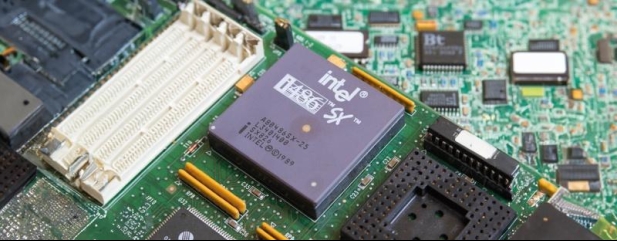Archived article
Please note that tax, investment, pension and ISA rules can change and the information and any views contained in this article may now be inaccurate.
Intel rolls the dice on foundry spin out, but will it be enough?

Chip maker Intel (INTC:NASDAQ) plans to split out its chip manufacturing operations from its design capabilities in a strategic move that it hopes will help reinvigorate growth and halt its dismal share price performance.
The Santa Clara-based business hopes that spinning out its Intel Foundry Services arm will provide external foundry customers and suppliers with greater separation from Intel’s core operations, while also allowing the unit to tap independent funding, spurring growth and shareholder value.
Pat Gelsinger, Intel’s chief executive officer, assured employees that the leadership team of Intel Foundry Services would remain unchanged and continue to report directly to him. An operating board, including independent directors, will be established to govern the subsidiary.
Intel shares rose more than 7% on the announcement to $22.50.
Analysts at KeyBanc Capital Markets said they were ‘very encouraged’, by the move, praising Intel’s management for being proactive regarding the initiatives that it controls, or in other words, costs. ‘We’re encouraged by the decision to make Intel Foundry Services a separate independent subsidiary, which should reduce conflicts of interest between IFS and IDM (Integrated Device Manufacturing),’ they wrote in a note to clients.
But the move stops well short of the complete shift out of manufacturing that some analysts and investors had hoped for. In a recent analysis of Intel’s business, Citi analysts stated their belief that the company could significantly improve its profitability by exiting the foundry business.
‘We continue to believe Intel would be better off exiting the foundry business in the best interest of shareholders,’ Citi analysts wrote, citing the division’s massive losses. The foundry business, which lost $2.8 billion last quarter, is projected to lose at least $8 billion annually.
If Intel were to exit the foundry business, Citi estimates the company could see a substantial boost in both earnings and margins. ‘We estimate if Intel exits the foundry business, the company could ultimately see EPS (earnings per share) in the $3 to $4 range and gross margins somewhere in the low-to-mid 50% range,’ Citi noted.
In 2023, Intel reported $1.05 of EPS and consensus forecast data from Koyfin has EPS falling sharply in 2024 to just $0.26.
While one of the most familiar chip names to retail investors, Intel has struggled to adapt beyond its core PC and servers markets, crucially failing to capture meaningful share in the AI space. Intel shares have more than halved this year and Morningstar data shows the stock delivering negative total returns for investors over the past three, five and 10 years.
Important information:
These articles are provided by Shares magazine which is published by AJ Bell Media, a part of AJ Bell. Shares is not written by AJ Bell.
Shares is provided for your general information and use and is not a personal recommendation to invest. It is not intended to be relied upon by you in making or not making any investment decisions. The investments referred to in these articles will not be suitable for all investors. If in doubt please seek appropriate independent financial advice.
Investors acting on the information in these articles do so at their own risk and AJ Bell Media and its staff do not accept liability for losses suffered by investors as a result of their investment decisions.
Issue contents
Feature
Great Ideas
Money Matters
My Portfolio
News
- Chinese economic data piles pressure on leadership to take bold steps
- Can Costco continue to deliver the goods?
- Shares in International Consolidated Airlines reach for the sky
- Building materials group SIG hits rock-bottom on weak European sales
- Intel rolls the dice on foundry spin out, but will it be enough?
 magazine
magazine








